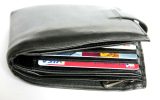More and more airlines are allowing passengers to “pool” their miles in a shared account. What does this mean? It’s a quicker path to award tickets, particularly for families. If two parents and two kids each have 15,000 miles in separate accounts, those miles aren’t particularly useful. But a combined pool of 60,000 miles can probably cover at least one person’s flights on the family’s next trip.
Here’s how it helped me snag two free seats: My husband and trumpet-playing son are headed to a trumpet conference. By pooling the mileage they had collectively earned on past United flights, we were able to accumulate enough miles to cover this trip. Airlines that don’t allow mileage pooling extract hefty fees when you don’t have quite enough for an award ticket: You must pay either to “gift” miles to someone else or to buy the extra miles you need.
In this case, my husband and son each had enough miles for one ticket, but purchasing their flights separately would have required identifying my son as an unaccompanied minor—even though his dad would be on the same flights under a separate ticket—and it risked having their reservations rebooked separately if anything went wrong. So pooling their miles provided additional benefits to make their travel smoother.
United is the latest airline to adopt mileage pooling, but a bunch of other airlines already have this system in place, from JetBlue and Hawaiian to British Airways and Emirates. The rules of who can pool mileage and how to do so vary by airline, but I can tell you that United’s process takes several days—you have to wait 72 hours after you join a pool to contribute or redeem miles, and there’s an additional 24-hour waiting period between when you transfer miles into a pool and when you can use them to book a flight. By the time I jumped through all those hoops, the miles required for the flights I wanted had gone up, so I had to add more miles and wait an extra day. But it was still preferable to shelling out more than $600 for the flights; next time I’ll make sure our pool has more miles than what’s needed for the flights I have my eye on, in case the required redemption amount goes up in the interim.
So now that it’s easier for your family to redeem your collective frequent-flier miles, where do you want to go? If you know when you can travel, check out our favorite destinations by month. You’ll also find inspiration in our travelers’ reviews of their best trips, organized by traveler type, trip theme, destination, and more. If you’d like our advice on where to go, click the black button below.
Be a smarter traveler: Sign up for Wendy’s weekly newsletter to stay in the know. Read real travelers’ reviews, then use the black CONTACT buttons on Wendy’s WOW List to reach out to the right local fixer for your trip.









